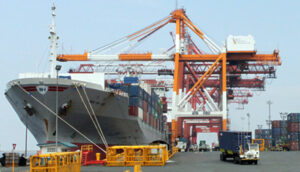By Justine Irish D. Tabile, Reporter
THE Department of Trade and Industry (DTI) said it is seeing “renewed interest” from the second Trump administration in exploring a bilateral free trade agreement (FTA) with the US.
“With renewed interest under the Trump administration, we are optimistic about negotiating a next-generation trade agreement that not only expands market access but also ensures the highest standards of labor rights, environmental protection, and social inclusivity,” Trade Secretary Ma. Cristina A. Roque said in a statement on Wednesday.
According to the DTI, the Philippines has been working with the US to expand access to global manufacturing value chains.
“This includes exploring a potential bilateral FTA, while advocating for the reauthorization of the Generalized System of Preferences (GSP), and pursuing the establishment of a critical minerals Agreement,” it added.
The Philippines was a beneficiary of the US GSP, which eliminated duties on 5,000 tariff lines. However, legal authorization for the program expired on Dec. 31, 2020.
“Exports from the Philippines to the US that were previously duty-free under the scheme are now subject to Most-Favored-Nation (MFN) tariffs,” the DTI said.
“The Philippines was the fifth-largest beneficiary of the US GSP, with about $1.6 billion in duty-free exports entering the US in 2020, the last year the GSP was in effect,” it added.
On Feb. 4, Ms. Roque attended the Parliamentary Intelligence-Security Forum, where she touted the importance of free, fair, and open trade within the Indo-Pacific region.
“The Indo-Pacific is the engine of the global economy, contributing 60% of global GDP and over 80% of global merchandise trade. The Philippines, with its strategic location and dynamic economy, is poised to shape the region’s economic landscape,” she said.
The Philippines participates in major free trade agreements such as the Indo-Pacific Economic Framework for Prosperity (IPEF).
“Our engagement in mechanisms like the IPEF reflects our commitment to pursue bilateral trade and overall economic interests with the US and other partner countries,” she said.
“It supports strategic collaboration in priority sectors, including energy and energy transition, climate mitigation and resiliency, good governance, supply chains, and critical minerals,” she added.
